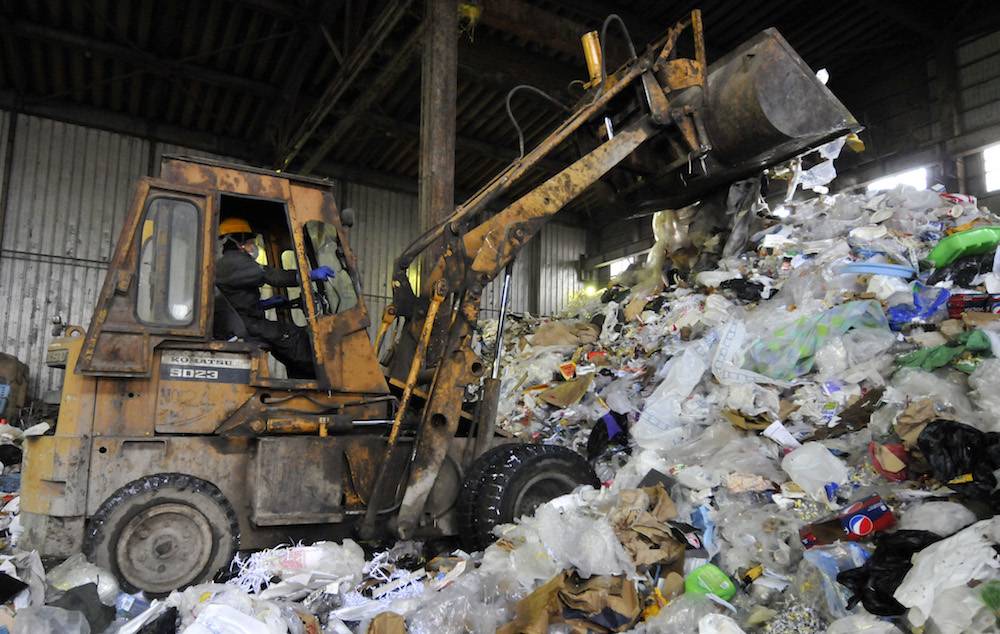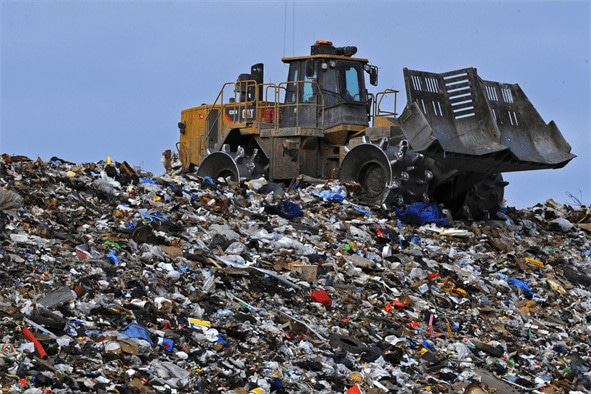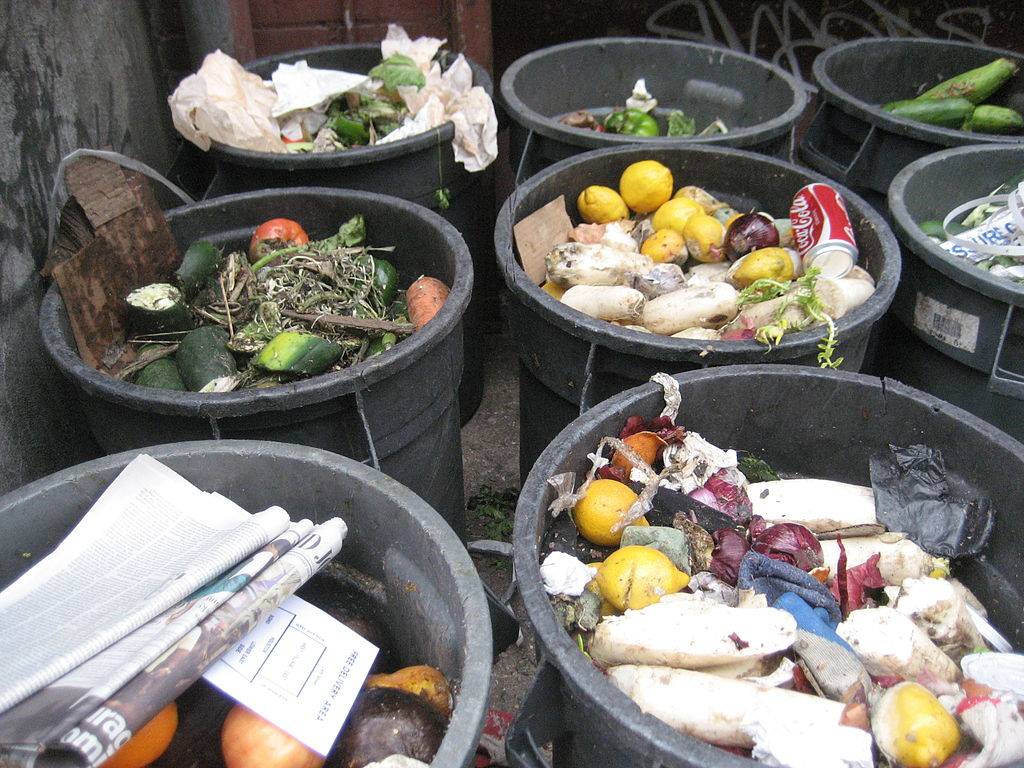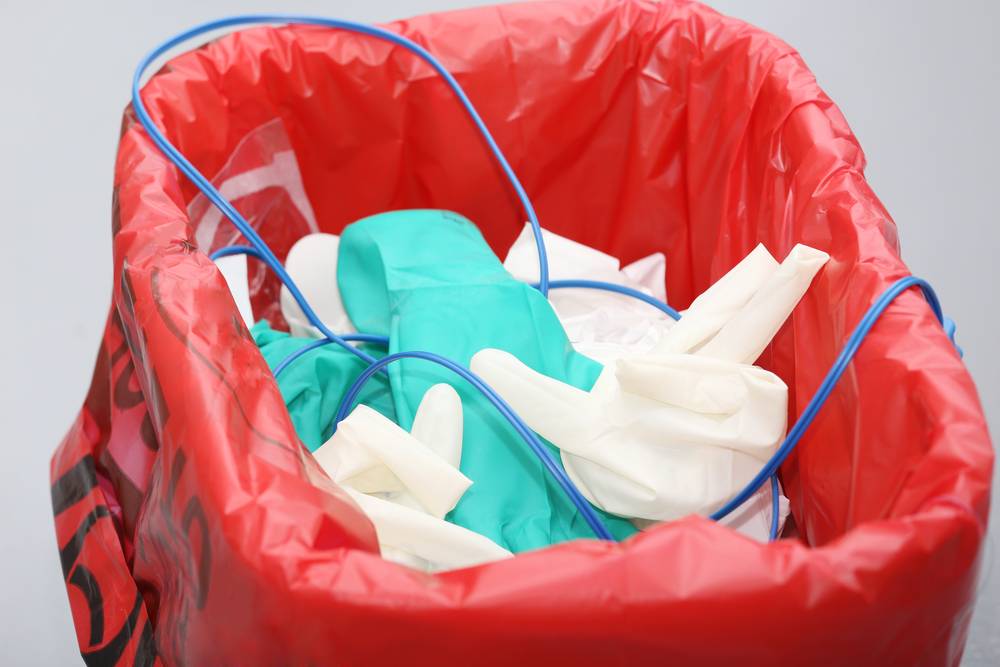A fine for improper medical waste disposal can come from nowhere and can literally break a business in half.
Imagine this: You run a small dental practice. One day an admin employee hands you a letter. It informs you that you’re under investigation for improper medical waste disposal. You may be liable for over $100,000 in fines. You may even lose your license.
Your crime? One of your employees routinely disposed of trash she didn’t even know was medical waste amid the regular garbage. Now, through no fault of your own (and the innocent ignorance of an employee) you could lose your practice.
Fines for medical waste violations are increasingly common. They tend to sneak up on us, but with a little knowledge, training, and prevention, they’re also very easy to avoid.
Fines for Medical Waste Violations
RCRA fines for medical waste violations as simple as a single labeling error can cost over $70,000 per day. Of course fines come from egregious violations like the case where a Pennsylvania dentist received a $100,000 penalty for dumping bags of syringes and other waste off his boat. (The waste later washed up on East Coast beaches.) But what about fines for crimes we don’t even know we are committing?
Private practices, doctors, dentists, veterinary clinics, funeral directors, and even hotels have been fined for such seemingly innocent activities as hiring the wrong waste disposal firm. Other businesses like nursing homes or even post offices have been fined for letting employees clean up messes, disposing of non-contaminated waste in landfills, or accidental needle sticks.
The most common violations that lead to medical waste fines are in the list below. In a minute, we’ll see how to avoid those fines and how to avoid them. We’ll also look at several real world examples to show you just how tricky it can be to stay safe and legal.
- Incorrect transportation
- Using the wrong containers
- Incorrect labeling
- Incorrect segregation
- Handling containers incorrectly
- Hazardous waste in sewer
- Transporting large amounts of medical waste without a permit
- Failure to conduct inspections
- Incorrect signage on storage areas
- Inadequate employee training
- Incorrect emergency contingency plans
Best Way to Avoid Medical Waste Fines

Did you know that some medical waste disposal companies can actually increase your liability? It’s true. Be very careful to read the fine print in your contract, because some businesses hold the doctor or practice liable if the medical waste company violates the law.
Let’s look at a scenario. You hire a firm to haul away your medical waste. You train your employees properly, and pay special attention to labeling, containering, and storing all waste according to the regulations. However, the medical waste company you hire then gets into trouble with the EPA for disposing of your waste improperly. Suddenly, you’re hit with a $90,000 fine. You have to pay the money even though you did absolutely nothing wrong.
This is a very real medical waste danger that illustrates why it’s so important to hire a medical waste disposal firm that takes on all liability the moment it accepts the waste. MedPro Disposal enters into just such a secure agreement with its customers.
Find Out How Much You Can Save Instantly.
Try our on-line savings calculator.
Fines Against Private Practices for Medical Waste Violations
Let’s dig into the real meat of this article with several real-world examples of companies that got heavy fines for handling medical waste improperly. In many of the cases below, the private practices, labs, or clinics involved didn’t even know they were doing anything wrong.
Take for instance the hospital that got a hefty fine for sorting their medical waste incorrectly and hiring an unlicensed firm to dispose of it. Or the Texas veterinary lab fined $40,000 for failing to register as a waste generator, though it meticulously followed all other storage, handling, and disposal regulations.
Veterinarian Fined $20,000 for Non-Pathogen Waste
Can your practice get fined for non-pathogen waste? You bet it can. In a decisive move, the Rhode Island Department of Environmental Management hit a veterinary clinic with a $20,000 fine for disposing of non-pathogen medical waste at a landfill. Officials concluded that the veterinary clinic couldn’t actually guarantee that the needles in the waste weren’t contaminated or were totally safe. In other words, they should have treated it as hazardous regardless of their judgement.
$149,000 Fine for Three Needle Sticks
Can a practice or hospital be fined when an employee sustains a needle stick? In an illustration of why employee compliance training is so important, a California hospital was fined $149,000 when three employees sustained needle sticks. The needles were stored in a collection box, but the box was often filled and the needles were frequently put in the box uncapped.
$6,000 Fine for Hiring the Wrong Medical Waste Disposal Company?
Let’s look at why hiring the right medical waste disposal company can save you from a hefty fine. In 2014, a Massachusetts hospital got slapped with a $6,000 fine when the DEP found that some medical waste was being hauled off by an unlicensed company. Yet the hospital didn’t knowingly break the law. Rather than hiring the wrong disposal firm, the real culprit was that employees weren’t sorting the waste correctly. That meant some medical waste accidentally got into containers slated for unlicensed waste haulers. Yet another reason compliance training is absolutely vital for your practice or clinic.
$537,900 Fine for Medical Waste in Landfill

In 2016, a Pennsylvania hospital group was fined over half a million dollars when residents near a landfill spotted red biohazard bags amid regular trash. A two-year DEP investigation uncovered several violations. Apart from the fines, the DEP ordered the hospital group to re-train its employees. The group also hired a medical waste disposal company to ensure future compliance.
$342,000 Fine for Making Employees Clean Up
It often falls into an employee’s job description to clean up messes and spills. But that basic duty led to a huge fine for the South Baltimore Postal Service. It’s actually legal to ship medical waste through the mail with the right licensing. However, when postal employees were tasked to clean up spills from shipped waste without personal protective equipment, OSHA stepped in with a $342,000 fine.
Hotel Fined for Medical Waste
How could a hotel ever get fined for improper medical waste handling? It happened in this case because a high-end Boston hotel ran afoul of OSHA regulators. The hotel was situated across the street from a major hospital. As such, it often served as a temporary home for patients being treated there who came in from out of town. When patients discarded bandages or syringes in the trash, the hotel violated medical waste disposal laws by proxy.
Funeral Director Fined $90,000
Funeral directors be warned: improper waste disposal could cost you dearly. For one Pennsylvania director, the penalty came in the form of a $90,000 fine and the loss of his mortuary license. The director in question was found guilty of improperly storing rotting medical waste in trash bags. The waste wasn’t sorted properly or distinguished in any way from the regular trash stored in the same place.
$65,000 Fine for Improper Disposal of Syringes
In the world of medical waste, does animal waste count? It does if you include the $65,000 medical waste fine sustained by an Arizona veterinary clinic. The clinic disposed of used syringes contaminated with animal blood in regular solid waste containers. The waste was then dumped directly into landfills. The settlement was very creative in that some of the money went into a program to treat animals in a local shelter. Another portion of the money went into education to train employees in proper waste disposal techniques.
$200,000 Fine for Improper Pharmaceutical Waste Disposal

If your employees fail to sort your waste correctly, it could end your practice. In 2015, a New Hampshire hospital was fined $200,000 when the state found that some pharmaceutical wastes weren’t identified as hazardous. The employees simply placed pharmaceutical waste products deemed “hazardous” into containers along with non-hazardous pharmaceuticals. It’s a simple mistake to make, but a very, very costly one. It illustrates yet again why compliance training is money well spent.
$70,000 Fine for Illegal Use of Transfer Station
Using the wrong medical waste containers can result in hefty fines. In 2012, a California hospital got fined $70,000 for illegally disposing of hazardous medical waste in a public landfill. They delivered a roll-off waste bin that contained medical waste to the landfill, including blood-soaked dressings and tubing filled with blood. The hospital was later found to be storing medical waste incorrectly, without the proper packaging and labeling.
$100,000 Fine for Dumping Bags of Waste from Boat
Would you ever dump bags of syringes from your boat? It sounds like something from an episode of The Sopranos, but this shows the lengths some people will go to, to avoid the rising costs of medical waste disposal. In 2010, a Pennsylvania dentist was fined $100,000 for dumping hundreds of needles and other medical waste from his boat. The waste then washed up on New Jersey beaches. He got off light. The dentist could have received as much as a five year prison sentence for his crimes.
$40,000 Fine for Failure to Register as a Waste Generator
Imagine this. You follow all the medical waste disposal regulations to the nth degree, and yet you still get nailed with a $40,000 fine. That’s what happened to a Texas veterinary lab when it was found guilty of failing to register as a waste generator. The lab disposed of pharmaceutical waste according to regulations for labeling, packaging, and transporting. It was allowed by law to dispose of a certain amount of the waste without registration. The lab’s crime was overstepping the limit set for non-registered entities.
Conclusion
Medical waste fines are no laughing matter. With allowable penalties upwards of $70,000 per day for each infraction, medical waste generators of all stripes need to be very cautious not to run afoul of laws. In some cases, we don’t even know we’re violating the law. In some cases, we may not even know we’re generating medical waste to begin with, as in the case of the hotel whose guests tossed bandages and syringes in the trash. These and other reasons highlight why partnering with the right firm for medical waste disposal and compliance training is one of the most important decisions we can make.



